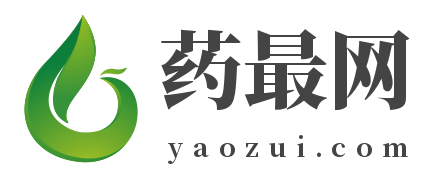恩华药业被FDA发警告信
培训通知:2019《药品管理法》产品研发申请注册生产制造合同条款深度解读重中之重培圳:药品研发质量管理体系创建北京站@赛默飞完全免费邀您报名参加2020中国药典分析大会 (限各家2人)10月22日FDA网址上挂出了恩华药业的警告信。关键缺点以下:1. Failure to ensure that all sampling plans and test procedures are scientifically sound and appropriate to ensure that your API conform to established standards of quality and purity.沒有确保全部抽样计划和检测程序流程可以科学并适当地确保贵司API合乎已创建的品质和纯净度的规范。2.Failure to adequately investigate and document out-of-specification results according to a procedure and implement appropriate corrective actions沒有依照程序流程对OOS結果开展充足调查统计和纪录,沒有实行适当的改正对策。下列是警告信原文转录Warning Letter 320-19-42September 10, 2019 Dear Mr. Sun Jia Quan:The U.S. Food and Drug Administration (FDA) inspected your drug manufacturing facility, Jiangsu NHWA Pharmaceutical Co., Ltd. (Jiawang site), FEI 3005619485, at No. 6 Tianyong Road, Industrial Park, Xuzhou, Jiangsu, from April 1 to 5, 2019.This warning letter summarizes significant deviations from current good manufacturing practice (CGMP) for active pharmaceutical ingredients (API). Because your methods, facilities, or controls for manufacturing, processing, packing, or holding do not conform to CGMP, your API are adulterated within the meaning of section 501(a)(2)(B) of the Federal Food, Drug, and Cosmetic Act (FD&C Act), 21 U.S.C. 351(a)(2)(B).Additionally, your drug products, (b)(4) are adulterated under section 501(b) of the FD&C Act, 21 U.S.C. 351(b), for failure to conform to compendial standards for strength, quality, or purity.We reviewed your April 26, 2019, response to our Form FDA 483 in detail and acknowledge receipt of your subsequent correspondence. During our inspection, our investigator observed specific deviations including, but not limited to, the following.1. Failure to ensure that all sampling plans and test procedures are scientifically sound and appropriate to ensure that your API conform to established standards of quality and purity.You manufacture multiple API listed in the United States Pharmacopeia (USP) that were imported into the United States and supplied to compounding pharmacies. For (b)(4) API, the laboratory stability protocols used to support expiration dating of these API are based on methods and specifications in the 2015 Chinese Pharmacopeia. You were not able to demonstrate that the tests used are equivalent to or better than the current USP 42 compendial methods. FDA compared your test methods, based on the Chinese Pharmacopeia, to the current standard in the USP. We found multiple differences in specifications and test methods. We also found that required tests for quality attributes in the USP were not part of the Chinese Pharmacopeia or your stability protocols. Beyond a deviation from CGMP, this also causes your drugs to be adulterated within the meaning of 501(b) of the FD&C Act, 21 U.S.C. 351(b), in that their strength, quality, or purity falls below the standards set forth in an official compendium recognized in the FD&C Act.Additionally, forced degradation studies were not validated for your USP-grade (b)(4). In your response, you stated that you would cease distribution until you have updated your methods, conducted a comparison of your test methods versus the current USP compendial methods, and tested reserve samples against the current USP standards. You stated that you would take appropriate action if you found quality issues with U.S. distributed product within expiry.In response to this letter, provide:Your commitment to using current USP compendial methods until any alternative methods have been demonstrated to be equivalent or better than the USP methods.A comprehensive study that determines whether your test methods for your API are equivalent to, or better than, the USP method, if you are not using current USP compendial methods. Include all findings and deviations encountered in assessing whether your alternative method is equivalent or superior to the USP compendial method. For FDA’s current thinking regarding analytical test method validation, see Analytical Procedures and Methods Validation for Drugs and Biologics at https://www.fda.gov/media/87801/download.Updated test results using a validated test method (e.g., USP method) of all reserve samples for all drugs released to the U.S. market within expiry to ensure that your drug products conform to appropriate standards of identity, strength, quality, and purity. Your action plan to address any product quality or patient safety risks for your drug products in U.S. distribution, including potential customer notifications, recalls, or market withdrawals.Your procedure for documenting and investigating any deviations from laboratory control procedures. 2. Failure to adequately investigate and document out-of-specification results according to a procedure and implement appropriate corrective actions.Our investigator discovered that (b)(4) batches of (b)(4) API failed finished release testing due to the discovery of foreign particles during color/clarity solution testing. The investigation
